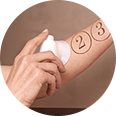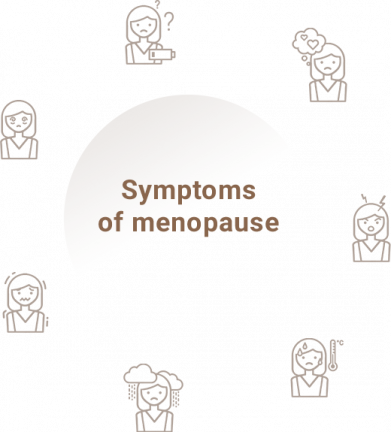

How is menopause diagnosed?
There are a lot of interesting important things happening in a woman’s life around the age of 45: that is the time when most are at the top of their professional career, in many families, children are at the age of puberty or leaving the family home, and important hormonal changes also occur about that time, leading up to menopause. The diagnosis of menopause can usually be made based on the typical symptoms.
It is crucial to visit a HRT specialist, but before consulting, read the articles to understand more about menopause. Once you have gathered necessary information, discuss with your gynaecologist your personalized hormone replacement options.
Hormonal roller coaster
The gradually decreasing activity of the ovaries begins with the fact that the ovulation no longer takes place regularly, causing the hormones to change rapidly and resulting in what feels like a hormonal and emotional roller coaster ride.
Common symptoms
A symptom that indicates the change in many women is actually bleeding disorders due to the disrupted cycle. First, women experience the so-called breakthrough bleeding that can be so severe that many women find frightening, especially if they only had weak bleeding before.
Another common symptom of menopause is the occurrence of hot flashes, which are sudden heat attacks and sweats. About two-thirds of women are affected, although the severity of the symptoms vary individually.
Hormonal changes, especially estrogen deficiency may cause further symptoms such as breast tenderness in varying degrees of pain and discomfort, weight increase, bone loss and joint pain, and even cardiovascular disorders, skin and vaginal dryness, bladder infections, the possibility of dementia, and much more. The physical symptoms are even more impactful with the mood swings hormonal imbalances cause: the line between a depressive mood due to menopause and a serious depression can be very thin.

Other interesting and useful articles
Read more articles
in other topics too

Is hormone therapy SAFE?
Click to read articles about

Manage & living with menopause
Click to read articles about


